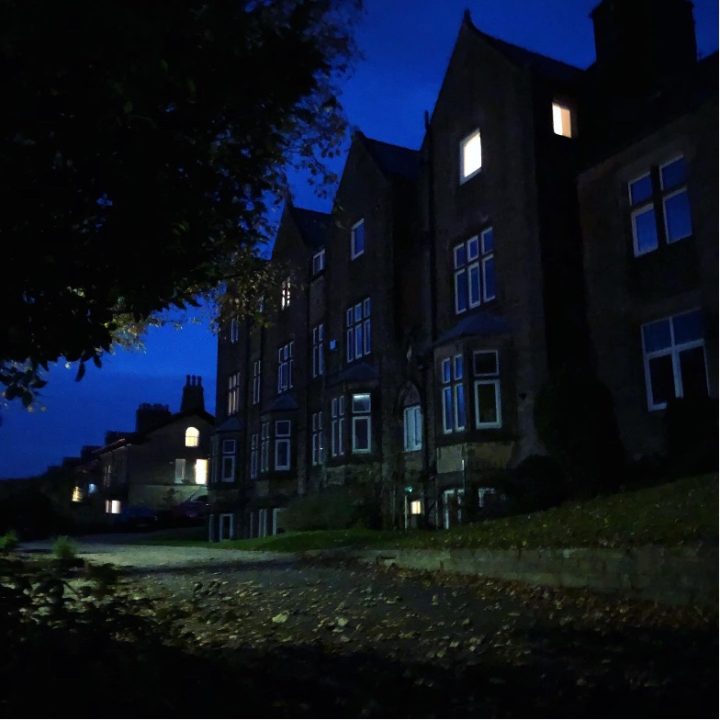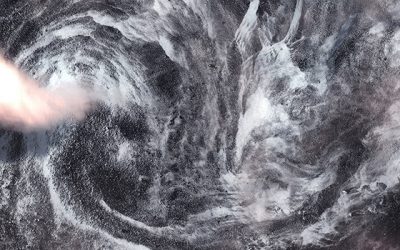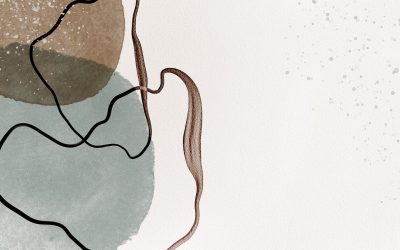Written by Tiina Mannisto-Funk.
“And what greater delight and wonder can there be than to leave the straight lines of personality and deviate into those footpaths that lead beneath brambles and thick tree trunks into the heart of the forest where live those wild beasts, our fellow men?”
(Virginia Woolf: Street Haunting, 1927)
While in Lancaster, I visited the Oxfam secondhand book shop on Penny Street and happened to buy a collection of eerie tales edited by the folklorist Elizabeth Dearnley, including among others Virginia Woolf´s 1927 essay on street haunting. In it, the first-person leaves their London home on a winter evening to buy a pencil, but actually to follow the desire of rambling the streets. The narrator also visits a secondhand book shop, and Woolf writes:
“Second-hand books are wild books, homeless books; they have come together in vast flocks of variegated feather”
As a historian of walking and material entanglements, I often think about such wild flocks. For are we not all parts in swarms of vitalities, as Jane Bennett would put it? And what does that mean to us as academic beings, being parts of academic flocks and swarms?
I was delighted to be the first visiting scholar in CeMoRe since the start of the pandemic. The visit was included in my Academy of Finland fellowship for studying the history of non-motorised modes of mobility in Finland. I spent a couple of weeks at the university in the late October and early November, had the much-appreciated opportunity to present my work focusing on pedestrian activism of the 1960s and 1970s, and met several wonderful colleagues who gave me their time for discussions, dinners and lunches, as well as walked with me or generously drove me around in their cars and showed me unforgettable sights; trees, towers, mills, moors.
But I also spent quite a large amount of my time wandering along dimly lit streets, looking for the address of my next lodgings with the help of google maps, dragging my unproportionally large suitcase on the bumpy pavement, wondering what to eat, and slightly questioning my life-choices. Or waiting on the side of the road for a bus to university while rain and hails hammered down on me and my fellow passengers-in-waiting, students and school children stoically getting wet while the bus never seemed to come or passed unapologetically bearing the sign “Bus Full”. And, in the sense of Woolfian street haunting, maybe this was also a valuable part of my visit.
Woolf´s narrator finds that rambling the streets loosens up the walls of one´s own personality, so fixed and determined while inside one´s own house, allowing the self to be blown this way and that, touching and feeling other lives and existences.
And so I am thinking about all the chance meetings and fleeting moments in Lancaster:
Different rented rooms where, like Woolf writes, “the lives and characters of its owners have distilled their atmosphere into it”. How I felt that some of them were so full of past lives distilled that the atmospheres had formed into proper ghosts.

But staying also in a spare room of a couple whose dog was very afraid of the Bonfire Night fireworks. Looking at the miniature railway wagons placed on shelves near the ceiling.
Hearing noises in the dark, smelling unfamiliar things. Using my telephone as a torch in order to find my way on slippery passages through gardens and yards, trying to identify the right door.
Then staying a couple of nights in the hotel where Dickens once stayed and ate cake, but definitely far from his rooms, tucked in the upper-most corner of the building where the wind was attacking windows during the night and the carpets of the corridor were being ripped off by renovators during the day. Coming back late one evening and discovering that the desk and lamp in my room had been replaced by quite different ones, as through magic.

Remembering the Finnish researcher whom I met in a sauna on a German freight ship last summer and whose name I have forgotten. How she had worked in Lancaster and told me: there is this one road in Lancaster, be near it and you will be ok.
Going every day to a very small Spar that in the end of the week did not have any instant porridge cups anymore, because I had bought and consumed them all.
Walking in the middle of streams of students on the campus, amazed by their sheer number.
Taking the bus with students, hearing them talking about their housing situations or master´s theses, some of them dressed in a bed sheet turned into a toga or using two pencils as chopsticks to eat a risotto.
Glimpsing some persons who looked like professors and lecturers, purposefully disappearing into corridors and rooms, with doors that had posters urging university staff to vote and print-outs with memes about late-stage capitalism.
Meeting a freshly arrived Malaysian master’s student while walking down the Chapel Lane towards Galgate late at night and starting a conversation in order to have the courage to pass the old graveyard illuminated by the moon.

It is apparent that the distant work of past years has made us acutely aware of the mundane peculiarity of bodily meetings. We seem to agree that both distance and presence have their own merits. But what exactly is the value of bodily presence? How on earth is it worth taking the train across half of Europe with too much luggage, desperately trying to understand the workings of British rail system, just because one stubbornly avoids air travel while the world continues to melt down and burn up, nonetheless?
Is it even possible to describe the material complexity of a university, to define the value of all the bodies coming together? A university follows the depressing workings of late-stage capitalism, to be sure, but also includes some magic of its own, a flock and swarm, a shifting of variegated feather. Moving one´s body through such a university is not only beneficial in the sense of facilitating academic meetings that can be richer, more surprising, and more spontaneous than the meetings online.
Haunting the corridors and passages has its own value that is difficult to pinpoint, as it consists of overheard snippets of ordinary discussions, of the sight and sense of many anonymous others, the way they carry books and expressions, inhabit rooms and lives. It lets the materiality of the world tug at our selves like the Lancaster wind tugging umbrellas. And that necessitates being a body walking in the dark, like Woolf´s narrator who now starts towards home again:
“In these minutes in which a ghost has been sought for, a quarrel composed, and a pencil bought, the streets had become completely empty. Life had withdrawn to the top floor, and lamps were lit. The pavement was dry and hard; the road was of hammered silver.”
Author:
Tiina Männistö-Funk is an Academy of Finland research fellow at the University of Turku, studying the history of non-motorised transport modes and the change in Finnish living environments. She has recently published for example on the gender of walking, history of kerbstones, and talking cars as a cultural and material phenomenon. She is the editor of the book Invisible Bicycle (Brill, 2019).
References:
Bennett, Jane. Vibrant Matter : a Political Ecology of Things. Durham: Duke University Press, 2010
Dearnley, Elizabeth. Into the London Fog : Eerie Tales from the Weird City. London: British Library, 2020.




